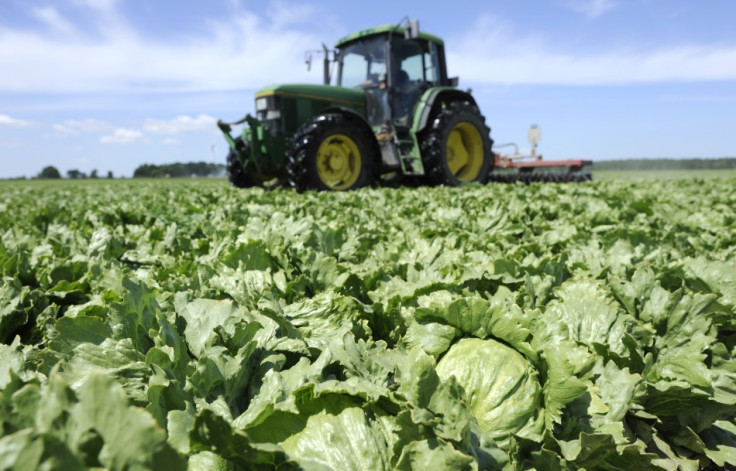Plant growth affected by human drug remnants in soil and water

Commonly used drugs like diclofenac and ibuprofen when released into the environment end up affecting plant growth, according to a study led by the University of Exeter Medical School and Plymouth University.
Even at low concentrations, the drugs have significant effect.
It was the overuse of diclofenac to treat cattle that led to vulture populations being wiped out in India.
The study assessed the impact of a range of non-steroidal anti-inflammatory drugs on lettuce and radish plants by looking at factors such as water content, root and shoot length, overall size and how effectively the plants conducted photosynthesis.
Each drug affected the plants in very specific ways, with marked differences between drugs that are closely related. For example, drugs from the fenamic acid class affected the growth of radish roots, while ibuprofen had a significant influence on the early root development of lettuce plants.
Dr Clare Redshaw, one of the scientists leading the project at the Medical School's European Centre for Environment & Human Health, said: "The huge amounts of pharmaceuticals we use ultimately end up in the environment, yet we know very little about their effects on flora and fauna... We haven't considered the impact on human health in this study, but we need to improve our understanding quickly so that appropriate testing and controls can be put in place."
Drugs used by humans find their way into soil through a number of routes, including the use of sewage sludge as fertiliser and waste water for irrigation.
With waste water systems unable to remove many compounds, their impact on plants, especially edible plants, has serious implications.
In poor countries, sewage waste water is directly used to irrigate crops.
The work has been published in the Journal of Ecotoxicology and Environmental Safety.
The study has only considered the non-steroidal anti-inflammatory drugs tolfenamic acid, meclofenamic acid, mefenamic acid, diclofenac, naproxen and ibuprofen.
Diclofenac, which is a powerful anti-inflammatory, was in the news for wiping out vulture populations in India, Pakistan and Nepal thanks to prolific use by the veterinary sector. It was banned in India but is available in the EU market where experts fear it could lead to similar disasters.
The effect of these drug remnants on human health is another aspect that will have to be studied.
Studies have shown how antibiotics in the environment are leading to increased resistance among microbes. The present study goes to highlight the need to control the escape of drugs into the environment.
© Copyright IBTimes 2025. All rights reserved.





















